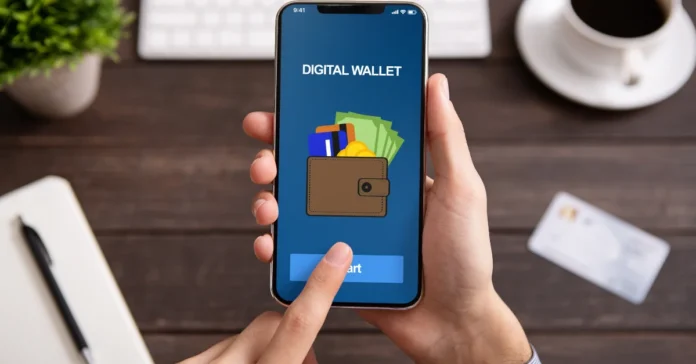Digital wallets have rapidly become a mainstream technology, revolutionizing how consumers make payments and how businesses engage with their customers. From offering convenience to improving security, digital wallets are reshaping the future of financial transactions. Here’s a deeper look at what digital wallets mean for both consumers and businesses
1. Convenience and Speed for Consumers
- Instant Transactions: Digital wallets make payments faster and more seamless. Consumers no longer need to carry physical cards or cash; a simple tap or scan on their mobile device completes the transaction.
- Streamlined Experience: With integrated payment methods (credit cards, debit cards, bank accounts), loyalty programs, and even ticketing, digital wallets provide a unified and convenient solution for everyday purchases.
- Cross-Border Transactions: Digital wallets simplify international transactions, allowing users to send and receive money globally with minimal fees and instant processing times.
2. Enhanced Security and Fraud Prevention
- Tokenization: Digital wallets use tokenization, which replaces sensitive card information with a unique identifier (token). This reduces the chances of fraud since card details are not exposed during transactions.
- Biometric Authentication: With fingerprint scanning, facial recognition, or voice commands, digital wallets enhance security by ensuring that only authorized users can make transactions.
- Two-Factor Authentication (2FA): Many digital wallets employ multi-layered security, such as two-factor authentication, further safeguarding user accounts from potential breaches.
3. Personalized and Streamlined Shopping Experience
- Loyalty Programs Integration: Many digital wallets can store loyalty program information and rewards points, enabling users to easily redeem benefits at checkout without needing separate loyalty cards or apps.
- Personalized Offers: Businesses can tailor promotions, discounts, and offers based on consumer spending patterns, leading to more targeted and relevant marketing campaigns.
- Expense Management: For consumers, digital wallets can track spending patterns, categorize expenses, and help manage budgets effectively with insights on purchase history.
4. Business Benefits: Cost Reduction and Efficiency
- Reduced Transaction Fees: Digital wallets can lower transaction fees for businesses compared to traditional payment methods, particularly in cross-border transactions, which can be costly through banks or credit card networks.
- Faster Payments: With quicker transaction processing times, businesses can enhance their cash flow by receiving payments almost instantly, improving liquidity and operational efficiency.
- Contactless Payments: Businesses can implement contactless payment systems, which not only speeds up checkout but also enhances the customer experience by reducing wait times.
5. Boosting Customer Engagement and Retention
- Increased Customer Loyalty: By integrating loyalty programs into digital wallets, businesses can foster better customer relationships and boost loyalty. Customers are more likely to return to businesses where they can easily redeem points or access personalized discounts.
- Engagement Through Push Notifications: Digital wallets allow businesses to send targeted push notifications about new products, offers, or promotions directly to the consumer’s mobile device, keeping them engaged and encouraging repeat purchases.
6. Access to a Broader Consumer Base
- Appeal to Digital Natives: Millennials and Gen Z, who are more tech-savvy and inclined to use mobile solutions, prefer using digital wallets for their convenience. Businesses adopting digital wallets can tap into these younger, tech-driven markets.
- Financial Inclusion: Digital wallets are making it easier for underserved populations who may not have access to traditional banking services to engage in the digital economy. This is particularly relevant in emerging markets, where mobile payments have seen explosive growth.
7. Regulatory and Privacy Considerations
- Compliance with Payment Regulations: Businesses using digital wallets need to comply with payment regulations such as PSD2 (Payment Services Directive 2) in the EU and other regional laws that govern electronic payments and data privacy.
- Data Protection: As digital wallets store sensitive financial data, businesses must ensure robust security protocols are in place to protect consumer privacy and comply with regulations such as GDPR or CCPA.
- Consumer Trust: While digital wallets offer enhanced security, businesses must continue to educate consumers on best practices and reassure them about the safety of using digital wallets for payments.
8. The Future of Digital Wallets
- Integration with Other Technologies: The future of digital wallets is closely linked with emerging technologies such as blockchain, which could further improve security and decentralize transactions. Additionally, wallets may integrate with other smart devices like wearables for an even more seamless payment experience.
- Expanding Functionality: Beyond payments, digital wallets could become central hubs for managing all aspects of a consumer’s financial life, from insurance to investments to healthcare payments, offering even more value for users.
Conclusion
The rise of digital wallets is changing the landscape of how consumers interact with money and how businesses engage with their customers. For consumers, the convenience, speed, and enhanced security of digital wallets are driving widespread adoption. For businesses, digital wallets offer cost efficiencies, improved customer experiences, and new avenues for engagement and growth. As adoption continues to grow and technology evolves, digital wallets will play an even more integral role in the future of both personal finance and global commerce.
For businesses, embracing digital wallet technology isn’t just a trend; it’s becoming a necessity to stay competitive and relevant in an increasingly digital world.
#DigitalWallets #FinTech #BusinessGrowth #DigitalTransformation #FinancialTechnology #SecurityInPayments #DigitalBanking


